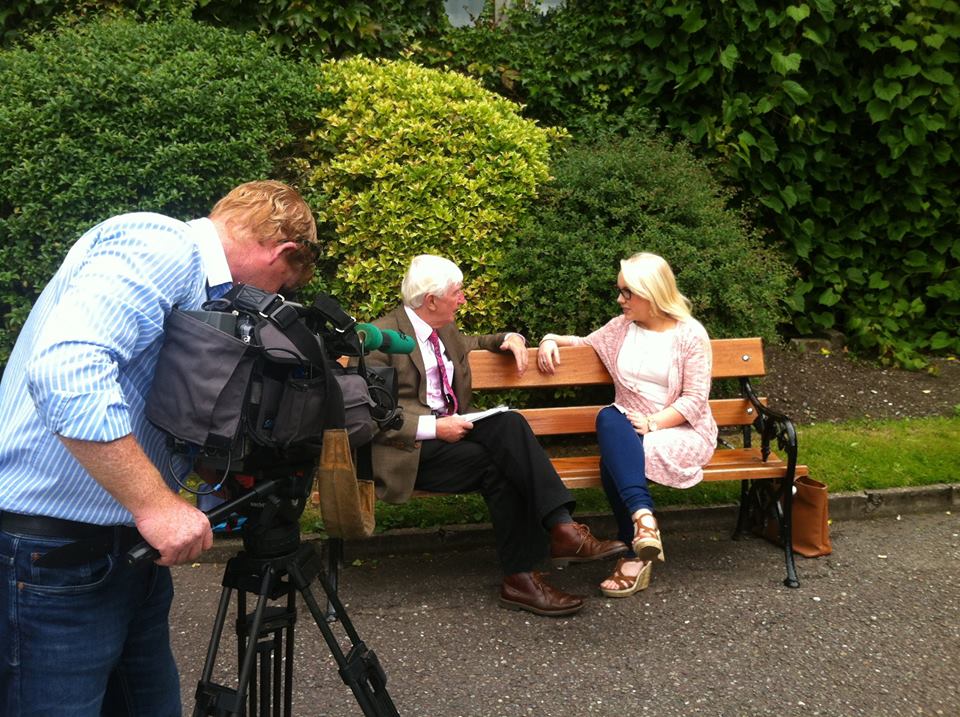4 July 2016
Richard Bruton TD, Minister for Education snd Skills
Dáil Éireann,
Kildare Street,
Dublin 2.
An open letter to Minister for Education and Skills, Richard Bruton TD
Dear Minister Bruton,
My name is Jessica Ní Mhaoláin, I’m a 24 year-old student from Cork City. I’m writing to you to give you an insight into my world as a student with a severe vision impairment, and I would also like to offer some recommendations to you as a service user of special education services for more than 20 years. I completed primary and secondary school, and am currently applying for a PhD in UCC, where I have already completed a BSc in Health Promotion and a Masters in Government. My masters research was around the area of special education, and my PhD topic (if approved) will follow on from it. I’m hoping that by reading this letter, you will take some time to think about the plight of many other children, teens, and adults like me who are currently working their way through the education system – some with more success than others, as is the case in my situation. Hopefully, an insight like the one I will write you can assist you in deciding how best to apply funding in sections of your department ahead of the next Budget, and may also open a dialogue between a service user, like me, and you as Minister.
Firstly, I would like to give you an overview of my disability. From birth, I have suffered from a condition known as oculocutaneous albinism accompanied by nystagmus. Oculocutaneous albinism is a rare disorder due to a genetic abnormality that effects the skin, hair and eyes; my body cannot produce melanin because of it, and therefore my optic nerves failed to develop properly. Because of this malformation, I can see about 3-4 feet in front of my face, and after that my world starts to blur. I also suffer from an involuntary movement of the eyes, known as nystagmus; my eyes ‘shiver’ (for want of a better word) and this prevents me from focusing my eyes on anything, including when I’m reading or writing. As you can probably imagine Minister, this disorder has a considerable effect on my day-to-day life; I use a cane to navigate my way around, I cannot drive, I cannot read menu boards or small print in newspapers, and it also effects my fine motor skills which restricts my ability to write neatly or draw diagrams.
My journey in the Education system began in the mid-nineties when I started at my local Montessori in Ballyphehane, Cork. At first, the differences between other children and I went largely unnoticed – we were all learning skills at the same rate as 3 and 4 year-olds do. It was when I started primary school that my disability really began to hinder my ability to learn at the rate my schoolmates were. We learned, as every child does, to read and write through exercises on a blackboard demonstrated by our teacher. Similarly, we learned about history, geography and maths the same way. But I couldn’t see the blackboard from my seat at the front of the class, and there were no vision aids available to me at the time. I didn’t fail to learn, however I learned far slower than my friends and fell behind quite early in my schooling – despite the help I did receive from my school who, at the time, had no legislative requirement to assist a child like me but did so because it was what I needed. Being honest and very candid about it all, I was almost nine years-old before I really grasped how to read and write properly, and this only occurred because services began to step in and help me – the Education Act of 1998 came into force but did not really ‘filter down’ until around 2001 for me – I was almost 10.
Services I availed of in school were largely in the area of teaching support and resourced learning hours. These were put in place to help me catch up to where my class was – I missed the basics of reading, writing and maths, and unfortunately I still feel I never regained what I have missed in those starting years. The help came a little too late for me, because of many reasons; financial decisions within the Dept; lack of understanding of my disorder; lack of training for teachers in different learning modes; and lack of classroom assistance like an Special Needs Assistant.
Luckily, the availability of these services improved within the Primary teaching setting after I moved onto secondary school, something I was so happy about. Until I heard they have begun to disappear again. Before the last election in February I spoke out about my worry at the effect recent special education cuts in Cork would have on the future of the children at the centre of these cuts. I know better than most, Minister, that a child with any kind of disability is at risk of failing to learn the basics if the help of a scribe or SNA isn’t in place for them – my case isn’t just a once off. My heart broke for the families of these children when I learned that their SNA’s had been cut – for me, that would mean a ‘working pair of eyes’ were taken from my classroom experience. An SNA is more than a classroom assistant to children with a disability – for some of us they can replace a sense we have lost such as sight or hearing, for others they are a physical support if their impairment has left them unable to write. And especially for children on the Autism Spectrum, these assistants are a major support for them as they integrate into mainstream aspects of school life. I sometimes wonder if the role of an SNA is underestimated or misunderstood by some in the education sector, and perhaps this is why their position is sometimes treated as a luxury by Department officials. Of course, I’m fully aware that financial resources are an issue in every government department and also the idea of special education is to hopefully allow the child independence from the assistant at some point – but depending on the disability the child is dealing with, it isn’t always practical to have the aim of eventually removing such an important support.
Although I have been lucky in how I got through my school years and made it to a fantastic university which has been constantly supportive of my needs, it is just that – luck. I have been lucky with the teachers and SNA’s I have met along the way. And I’m sure you would agree with me when I say that no child’s education should be left to chance with only luck on their side. Education is a basic human right for us all, education the tool that helps people escape from the poverty trap, education is our way to integrate into different aspects of society and enhance our lives with both knowledge and the enjoyment of reading our favourite book, or discussing a recent play – or just being able to balance a chequebook.
Minister, I intend to write to you monthly with these education updates and with ideas I have researched into improvements that can be found in the Special Education sector. There are so many things that can be done – big and small changes – that they are too numerous to detail in one letter alone. I don’t believe that your government, or any other government before you, has ever intended to wilfully neglect the Special Education sector. However, I do believe you and your officials can benefit from the input of a service user like me to assist in targeting areas which need improvement. As I have said above, I have been lucky to find my way successfully, but many coming through the system before and after me have not been as lucky. My hope is that you or your staff would be open to establishing a rapport with me. Although I have the research experience having completed a Masters Thesis in the area (which I will happily forward to your office should you wish to read it), I also have the practical experience of dealing with the Dept of Education as a service user for more than 20 years.
I believe you and I both want the same thing for children with special educational needs – we both want them to have an equal playing field when it comes to learning and reaching their full potential.
Is mise le meas,
Jessica Ní Mhaoláin, BSc., MBS.


